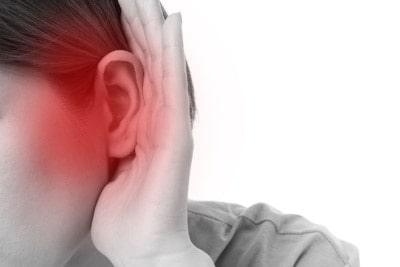Hearing Loss and Sound Therapy
Learn how Sound Therapy can stimulate your ears to improve hearing in group conversations or on the phone.


The problem of hearing loss
When a member of the family begins to lose their hearing, it is often the other members who notice it first and are most affected by it. Those who are losing their hearing often deny that it is happening and believe others are just not speaking clearly. Some early signs of hearing loss are difficulty hearing in a noisy room, known as Cocktail Party Syndrome, needing the TV turned up louder than everybody else, misunderstanding words or having to ask people to repeat themselves. One of the reasons for the denial, is that people may dislike the idea of wearing a hearing aid.
But fortunately, positive options are now available for those with hearing loss. Sound Therapy offers a very useful and beneficial solution for those with hearing loss, so read on to learn about how so many listeners have improved their hearing through Sound Therapy.
“I went this morning for a hearing check. I was anticipating some improvement but what I heard was quite surprising: “ I see that all your higher frequencies had a better result than last time (2 yea...”
John Bosch of New Zealand - Read More
Loss of hearing affects social participation more than any other sense. Language is our means of communicating with people so all aspects of life are affected including work, relationships, family, education and recreation. For many people this can be devastating, affecting their career, leading to lowered self esteem, reduced income, social isolation and reduced options in life.
A proven way to improve hearing
It is important to take steps to improve your hearing ability both by using hearing aids, if appropriate, and with Sound Therapy which directly enhances the performance of the natural ear.
Sound Therapy offers a great alternative for several reasons:
- It may delay the need for hearing aids in mild cases of hearing loss
- It assists with hearing in a noisy room, whereas hearing aids often make this worse
- It tunes up high frequency hearing, making speech comprehension easier
- It is a natural approach, improving the body’s own function rather than compensating with a device
- For hearing aid users, Sound Therapy helps them to use their hearing aids more successfully. This is because it activates the ear muscles, improving the focusing function of the ear and improves central auditory processing. Hearing aid users listen to Sound Therapy either through their hearing aids, or at a time when they are not using the aid.
“Tuesday, I was cutting up timber with my chainsaw with ear safety mufflers on. Big powerful chainsaw, plenty of noise, and I heard my mobile phone ringing. I carry my phone on my belt. So this was a f...”
Harry Cook – Victoria - Read More
Why does hearing deteriorate?
There are many contributing causes to hearing deterioration. Some of the more common ones are:
- Inner ear (Cochlear) damage due to prolonged exposure to loud noise.
- Lack of high frequency sound to stimulate the ear.
- Lack of good muscle tone in the middle ear, caused by stress or poor diet.
- Poor Central Auditory Processing, see Cocktail Party Syndrome
- Psychological factors – hearing closes down due to emotional trauma
- Otosclerosis – overgrowth of the cochlear bone which results in fusing the stapes to the cochlea.
What Sound Therapy listeners have said about hearing improvement
- “I have notes in the top of my vocal range which are brand new.” Melanie King
- “The crisp new sound of the dentist’s drill made me happy!” Hans Wuelfertt
- “I just heard my wife’s microwave beep for the first time.” Retired veteran.
- “Now the family can all watch TV together as Dad doesn’t need it turned up so loud.” Several listeners.
- “I heard the traffic indicator on my car for the first time.” Rev. Sarsha Carpenter
- “I now have better hearing in my sixties than I have ever had in my life, thanks to Sound Therapy.” Ian Patterson
- I’d better be careful what I say to him now…or what I say to someone else, ‘cause he can hear me!” Frances Clark
How does Sound Therapy help hearing?


- Exercising the muscles.
The middle ear contains two tiny muscles, the hammer muscle and the stirrup muscle. Good muscle tone and flexibility is essential for the fine tuning of the middle ear mechanism. The alternating high and low frequencies activate brain pathways which cause the ear muscles to repeatedly tense and relax. This exercise restores muscle tone and improves the functioning of the whole ear mechanism.
- Stimulating the cilia.
In the Sound Therapy music, the low frequency (low tone) sounds are progressively removed and the high frequencies are augmented. These high frequency sounds stimulate the cilia (the fine, hair like sensory cells in the inner ear). Where the cilia have been flattened by too much noise, the high frequency sound may stimulate and reactivate them to restore responsiveness. Using Sound Therapy has been found to enhance hearing perception in the high frequencies.
- Psychological opening.
Hearing is sometimes closed down to some extent for psychological reasons. Sound Therapy encourages resolution of psychological issues by reintroducing high frequency sound and re-creating the pre-birth experience of sound. As the psychological issues are resolved, the person can allow themselves to open to the full range of hearing.
Make an informed choice—get the eBook
After 26 years in the Sound Therapy field, we really understand hearing and what it means to live with different types of hearing loss. Every week our listeners thank us for the improvements they have experienced in hearing and communication with others.
If you would like to learn more in depth about how Sound Therapy helps hearing loss, order Rafaele Joudry’s FREE eBook here and benefit from her decades of experience helping thousands of listeners with Sound Therapy.
Or call and speak to one of our qualified Sound Therapy consultants right away.
Take action today to start listening to Sound Therapy and start hearing better!
Start Getting Relief Today
Click here to choose your package






